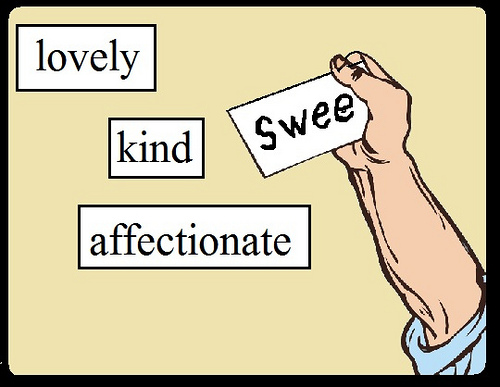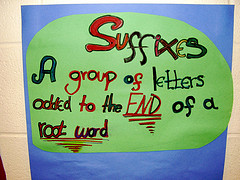1.1. Changeable weather: word formation of adjectives
 |
| Imagen de Evelyn Saenz en Flickr bajo licencia CC |
Actividad de lectura
 |
|
Imagen de Lester C. Guernsey en Wikimedia Commons. Public domain |
Tom is ready to visit the city now.
| forgetful - excellent - significant - historical - natural - terrible - massive - early - homeless - global - responsible - ready |
All the adjectives in the box are formed by adding a suffix to the verb or the noun becoming derivatives. Try to separate the suffix from the stem of the word.

| As you know, a suffix is a morpheme that is placed after the stem of a word to form a new word (derivative), quite frequently, of a different grammatical category (a noun, a verb, an adjective or an adverb). Click on the picture on the right to get some of the most frequently-used suffixes in English to form adjectives. |
Para saber más
Now, it's time to practice. Click here to do an easy activity to form adjectives. More exercises to improve your knowledge on forming adjectives by means of suffixes can be done not only by clicking here, but also here.
Do the following exercises for more practice:
Rellenar huecos
Fill in the blanks with a suitable adjective from the word between brackets. Remember that -ed and -ing are also suffixes to form present and past participial adjectives!
Importante
| Attributive vs Predicative adjectives
Most of the adjectives seen up to now may function attributively or predicatively. Do you know the difference between them? If you don't, don't worry, it's very easy! Attributive adjectives in English are those adjectives that are placed in front of a noun (e.g. Paco is not a forgetful man). Predicative adjectives, on the other hand, are those adjectives that are placed after the verb, normally a copula verb such as to be (e.g. He was very forgetful when he was a child). That is, it is part of the predicate of the sentence. REMEMBER: Adjectives in English never take the plural!!!! |

| Imagine you are asked to tell an experience related to a natural hazard you experienced when you were a child. Write a short paragraph telling your experience and how it ended. Remember to use a dictionary if you need help with vocabulary. |
|
That's all for now about word-formation of adjectives in English. We will study the order of adjectives in attributive position in unit 6, lesson 1!

